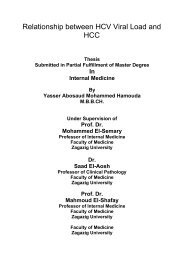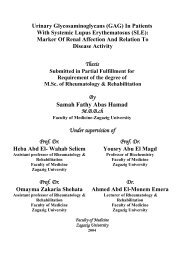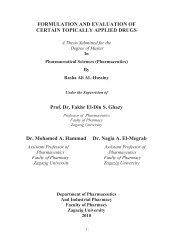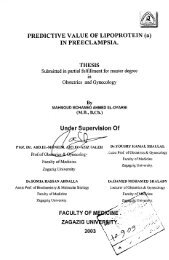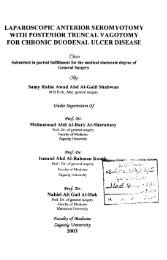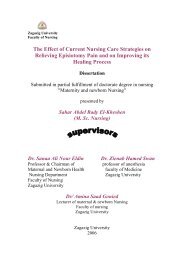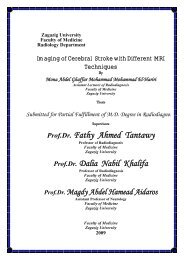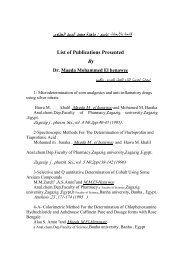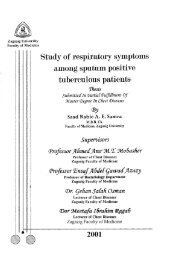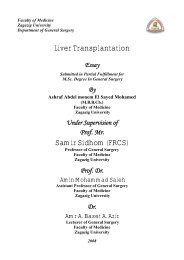Parasites and Biliary stones
Parasites and Biliary stones
Parasites and Biliary stones
Create successful ePaper yourself
Turn your PDF publications into a flip-book with our unique Google optimized e-Paper software.
Ascariasis ٨<br />
Ascariasis<br />
Ascariasis is caused by the parasite Ascaris lumbricoides, the largest<br />
intestinal nematode found in humans. Infection with this roundworm is<br />
most common in tropical <strong>and</strong> subtropical countries with the majority of<br />
infections in Southeast Asia (73%), Africa (12%), <strong>and</strong> South <strong>and</strong> Central<br />
America (8%) (Sarinas <strong>and</strong> Chitkara, 1997).<br />
Life cycle is characterized by an early pulmonary <strong>and</strong> later intestinal<br />
phase that follows the ingestion of infective eggs contained in<br />
contaminated food <strong>and</strong> soil. One of the most serious complications that<br />
may accompany heavy intestinal infestation is biliary ascariasis<br />
(Carpenter, 1998).<br />
The life cycle of Ascariasis lumbricoides is complex <strong>and</strong> begins with<br />
the ingestion of eggs. The larvae penetrate the intestinal wall <strong>and</strong> enter<br />
the surrounding capillaries where they migrate through the lungs 1–2<br />
weeks after the initial ingestion. In the lungs, the larvae again penetrate<br />
the capillary walls, entering the alveolar space where they ascend the<br />
tracheobronchial tree to the epiglottis, where they are eventually<br />
swallowed. The larvae reach the small intestines, most commonly the<br />
jejunum, where they mature into adult worms <strong>and</strong> they live from 10 to 24<br />
months (Valentine et al., 2001).<br />
<strong>Biliary</strong> involvement is the result of an erratic roundworm migration<br />
from the bowel, which may cause threatening complications such as<br />
cholecystitis, pancreatitis <strong>and</strong> hepatic abscesses (S<strong>and</strong>ouk et al., 1997).<br />
Intestinal ascariasis usually remains asymptomatic, but<br />
complications, such as appendicitis, intestinal obstruction, volvulus, or<br />
even bowel perforation may occur (Misra et al., 1999). Migration<br />
through the papilla of Vater can cause acute acalculous cholecystitis,






